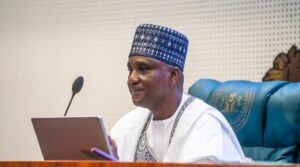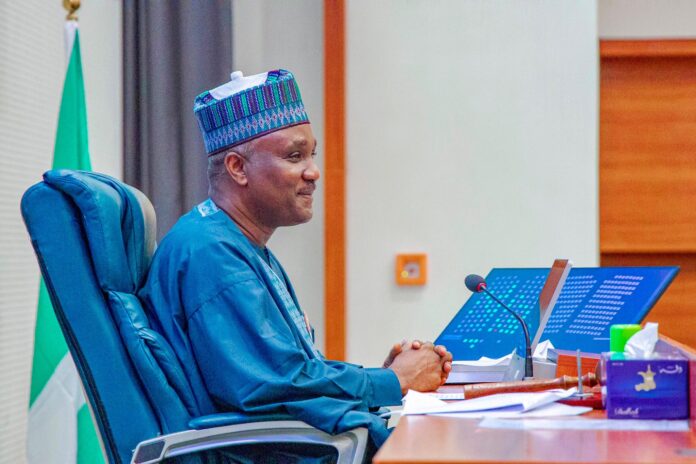The Speaker of the House of Representatives, Rt. Hon. Abbas Tajudeen, Ph.D., has emphasized the importance of strengthening bilateral relations between Nigeria and China, urging both nations to aim for a trade volume that surpasses the current $13 billion mark.
This statement was made during a meeting in Abuja with Mr. Zhang Qingwei, the Vice Chairman of the Standing Committee of the National People’s Congress of China, alongside the Chinese Ambassador to Nigeria, Mr. Yu Dunhai, and other officials from the Chinese parliament and embassy.
Speaker Abbas highlighted that among the over 70 parliamentary friendship groups in the House, the Nigeria-China Parliamentary Friendship Group stands out as the most active and beneficial.
He remarked, “The relationship between Nigeria and China is built on mutual respect, collaboration, and common goals. Over the years, this partnership has led to significant achievements in trade, infrastructure, technology transfer, and cultural exchange. Recent reports indicate that our trade volume has exceeded $13 billion annually, making China Nigeria’s largest trading partner. This partnership has significantly contributed to Nigeria’s economic growth through investments in critical areas like rail, agriculture, and manufacturing.”
He also praised China’s commitment to the Forum on China-Africa Cooperation (FOCAC), noting that the outcomes of the recent summit held from September 4 to 6 reiterated China’s steadfast dedication to fostering partnerships with African nations, including Nigeria. The involvement of President Bola Ahmed Tinubu at the summit highlighted Nigeria’s resolve to utilize FOCAC’s framework to further its national development objectives.
Expressing appreciation for the visit, Speaker Abbas stated, “As the People’s House and Nigeria’s largest legislative body, it is an honor to host you. Your presence signifies the strengthening friendship between Nigeria and China, which we hold in high regard.”
In a statement by Musa Abdullahi Krishi, Special Adviser on Media and Publicity to the Speaker, it was noted that the visit presents a unique opportunity to explore avenues for enhancing the relationship between the Nigerian National Assembly and the Chinese Parliament.

Speaker Abbas pointed out that the House has proactively formed the Nigeria-China Friendship Group to foster closer ties and promote collaborative efforts.
He expressed interest in learning from the Chinese Parliament’s extensive experience in legislative processes, institutional development, and socio-economic growth.
The Speaker assured the Chinese delegation that the Nigerian government, under President Bola Ahmed Tinubu, is committed to advancing its partnership with China, aligning with a shared vision for sustainable development and inclusive growth.
He stated, “The National Assembly is prepared to provide the necessary legislative framework to support initiatives that strengthen Nigeria-China relations.”
Looking towards the future, Speaker Abbas expressed optimism that collaboration between the two parliaments could unlock the full potential of their partnership, benefiting both nations and contributing to global stability and prosperity.
He proposed several concrete measures to enhance collaboration between the House of Representatives and the National People’s Congress (NPC) of China, including establishing structured programs for knowledge-sharing and capacity-building sessions focused on legislative strategies that have fueled China’s industrialization and economic success. This could involve seminars, workshops, and technical exchanges.
Additionally, he suggested initiating a formal parliamentary exchange program to facilitate regular visits by delegations, allowing for the sharing of best practices in policy formulation, especially in infrastructure development, renewable energy, and digital economy legislation.
Speaker Abbas concluded by stating that the Nigeria-China Friendship Group could play a crucial role in negotiating legislative incentives to attract Chinese investments in key sectors such as manufacturing, technology, and agriculture. He emphasized the need for a bilateral legislative framework to enhance trade relations, lower barriers to Nigerian exports, and establish sustainable mechanisms to improve trade balances.




